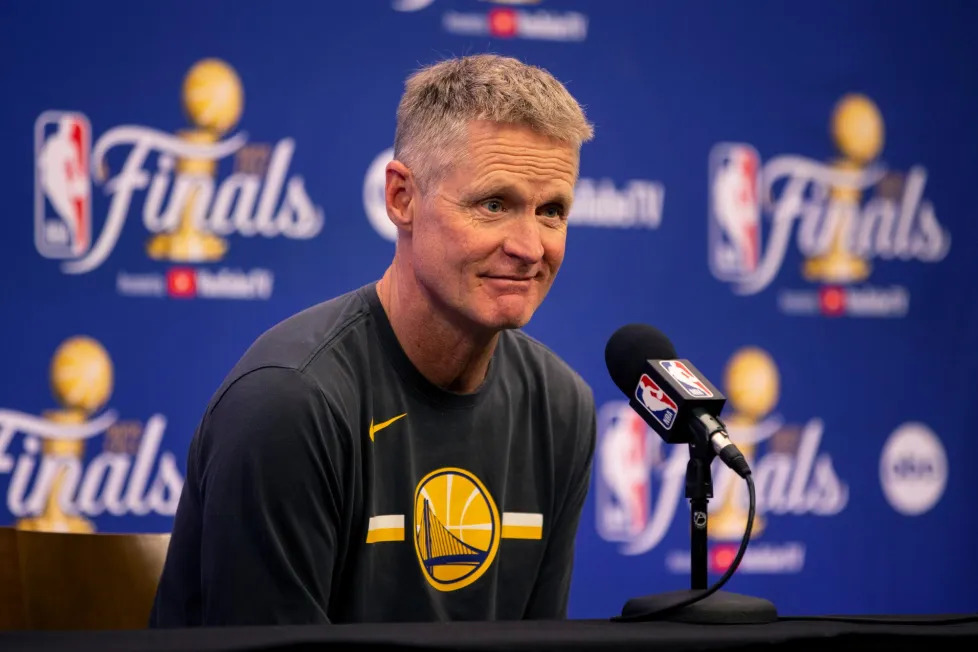
Steve Kerr, the Warriors’ coach, allegedly agrees to a $35 million, two-year contract deal
Call it the next step in keeping the band together in Golden State. Or call it rewarding the coach who hung four banners in your building.
Either way, Steve Kerr is getting PAID. The Warriors and Kerr agreed to a two-year contract extension worth $35 million, a story broken by Adrian Wojnarowski of ESPN.
This new extension makes Kerr the highest-paid coach in the NBA at $17.5 million a season (Gregg Popovich more per year but has additional duties as president of basketball operations). Kerr caught a bit of a break that his contract came up for an extension at a time when salaries for the top coaches in the league are exploding (Popovich at $20 million, Erik Spoelstra at $15 million, and Monty Williams at $13.3 million.
Kerr has been the head coach of the Warriors for 10 years, winning four NBA titles and racking up a .655 winning percentage (fifth best in league history), and it had been a priority of the organization to keep Kerr on the bench as long as they are keeping this core together (both Stephen Curry and Draymond Green have signed. Whatever the future holds for the Warriors, Kerr will be around through the end of this dynasty.
READ MORE:
Warriors’ Steve Kerr defends decision to not follow unwritten NBA rule that fueled Hornets fight
Don’t tell NBA lifer Steve Kerr that Lester Quinones and the Golden State Warriors broke some unwritten basketball rule in the waning moments of their 97-84 victory over the Charlotte Hornets on Friday night at Chase Center.
As the surging Dubs salted away their 10th victory in the last 12 games, Quinones went up to finish a layup that was quickly goaltended by Miles Bridges. The Hornets forward then gave Quinones a forearm to the chest, prompting a fracas between the teams that ultimately got both Quinones and Charlotte’s Grant Williams ejected.
After the game, Kerr explained why he found no fault with Quinones trying to score with the game already decided—a justification of which Bridges, Williams and the Hornets should’ve been fully aware in real time.
“For 10 years I’ve told our team if there’s a shot clock differential, you keep playing. To me, the game tells you to keep playing. We’ve always done it that way,” he said, per Anthony Slater of The Athletic. “Nobody’s ever been offended. They were pressing the last few minutes. You still play the game. As soon as there’s no shot-clock differential then you sit on the ball and you let the clock run out. But if there’s a differential I think guys should always keep playing. To me, it’s very strange why that would be offensive to anybody. I’ve never understood why that would be offensive.”
There was about a two-second differential between the shot clock and game clock as Quinones attempted his layup. It’s not like you can even chalk the Hornets’ wildly outsized response up to youth and inexperience, either. Bridges and Williams would have over a decade of NBA playing experience between them if the former hadn’t missed all of last season after pleading no contest to charges related to domestic violence.
Leave a Reply